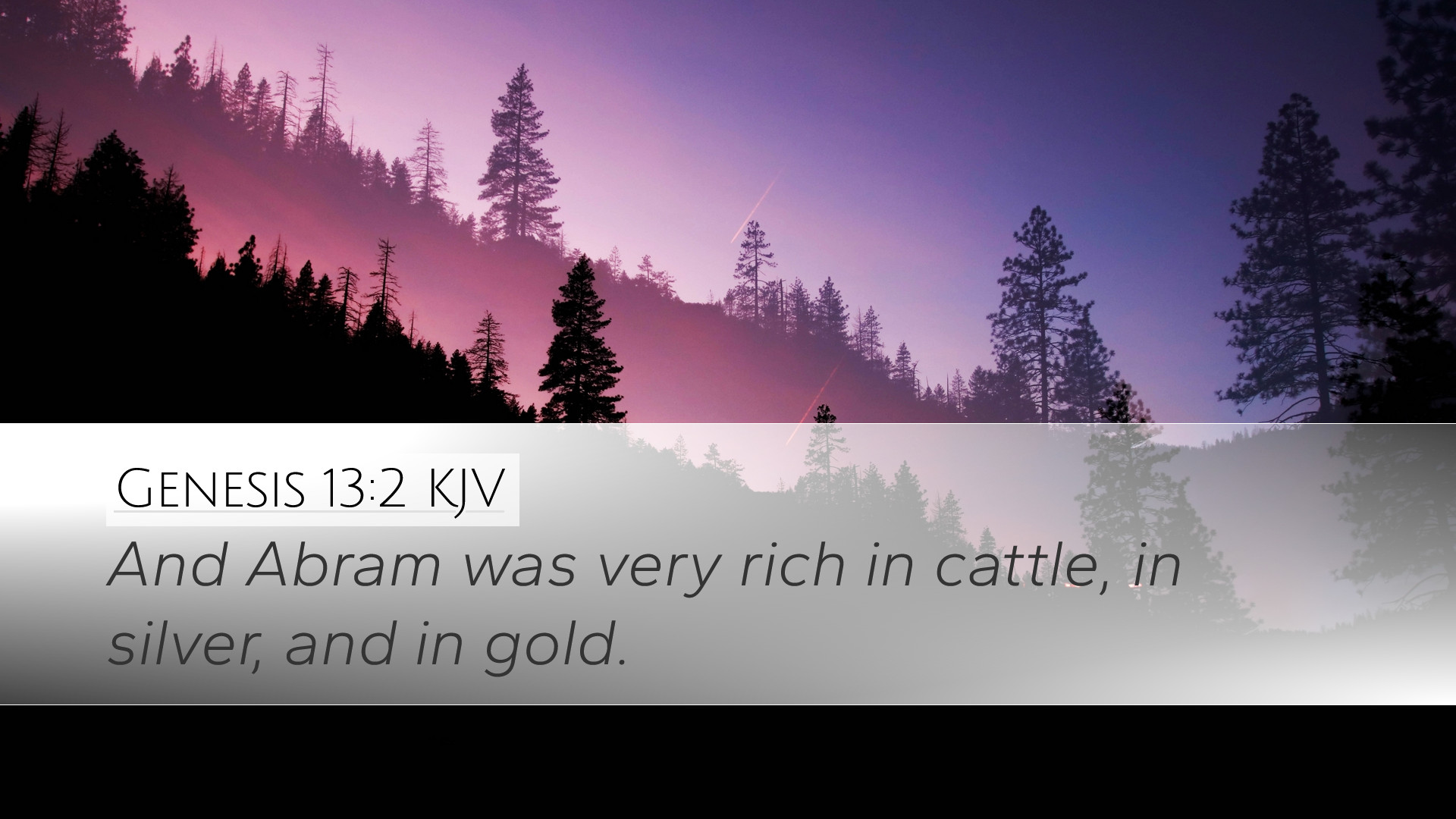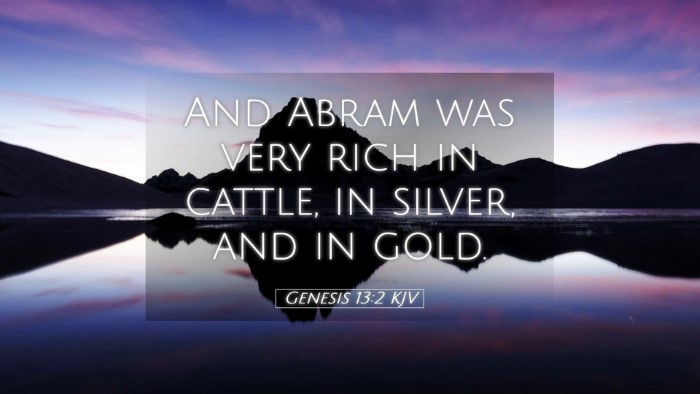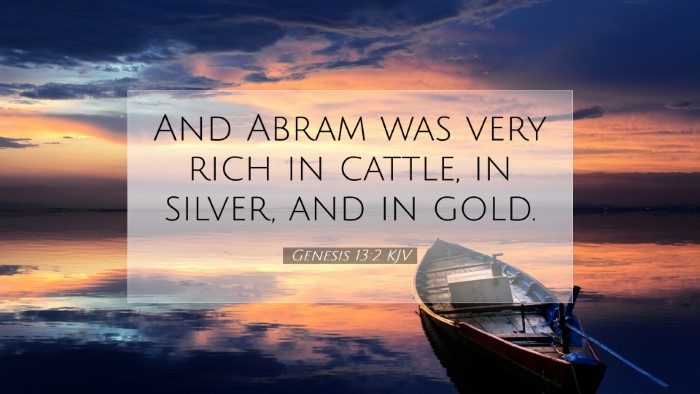Commentary on Genesis 13:2
Genesis 13:2 states, "And Abram was very rich in cattle, in silver, and in gold." This verse highlights not only the material wealth of Abram (later named Abraham) but also sets the groundwork for understanding his role in the Biblical narrative as a patriarch. The richness in various forms of possessions reflects both divine favor and the sociocultural context of the times.
Historical and Theological Context
Understanding this verse requires a consideration of the historical backdrop of Abram's life. He lived during a time of significant cultural development, where wealth represented power and influence. Notably, this wealth also served specific purposes in God’s redemptive plan.
Divine Blessing
Matthew Henry, in his commentary, emphasizes that Abram's wealth was a divine blessing. Abram obeyed God’s calling to leave his homeland, and as a result, God rewarded him materially. This serves to illustrate a principle that those who follow God's command often receive His favor. Henry notes that wealth should always be understood as a stewardship rather than mere possession. The faithful steward recognizes that all blessings come from God.
Wealth and Responsibility
Albert Barnes adds to this observation by framing wealth as a responsibility. The accumulation of wealth should lead to a greater responsibility towards others, which Abram eventually demonstrated through his interactions and generous spirit. Barnes points out that Abram's riches were not just for personal benefit but also for the potential good they allowed him to perform toward others, including his family and the community around him.
Richness in Context
Adam Clarke elaborates on the term "rich" in this verse. He notes that being "rich in cattle, silver, and gold" sheds light on the agrarian and pastoral lifestyle of the time. Cattle were a primary measure of wealth in the ancient world, and they provided not just food but also a means of trade. Therefore, Abrams' riches symbolize not only personal success but also his status within the wider community.
The Implications for Spiritual Leadership
This verse offers rich implications for spiritual leadership within faith communities. Leaders are often called to embody certain attributes, including faithfulness, integrity, and humility. Abram, as a wealthy man, had to navigate the challenges associated with having significant resources. His example provides a model for contemporary leaders on how to manage wealth in a way that honors God and serves others.
- Faithfulness: Leaders must remain faithful to God’s calling and resist the temptation to rely solely on their wealth.
- Generosity: The wealth Abram possessed was used to bless others. This is a vital principle for church leaders today.
- Humility: Despite his riches, Abram remained humble and obedient, acknowledging that everything he had was a result of God's grace.
Application for Today's Believers
The implications of Abram's wealth extend beyond ancient culture into modern applications for believers. Wealth continues to be a significant topic within the Christian community:
- Understanding Wealth: Believers today are encouraged to view their possessions as gifts from God meant for stewardly use, not for mere accumulation.
- The Role of Wealth: The faithful allocation of resources can impact ministry and outreach, reflecting a commitment to the Great Commission.
- Faith in God’s Provision: Just as Abram trusted in God's provision, modern believers are called to trust rather than be anxious about their material needs.
Conclusion
In summarizing Genesis 13:2, it is evident that this scripture provides profound insights into the nature of wealth as both a blessing and a responsibility. Matthew Henry, Albert Barnes, and Adam Clarke provide valuable commentary that highlights the importance of humility, stewardship, and the divine purpose behind material blessings.


